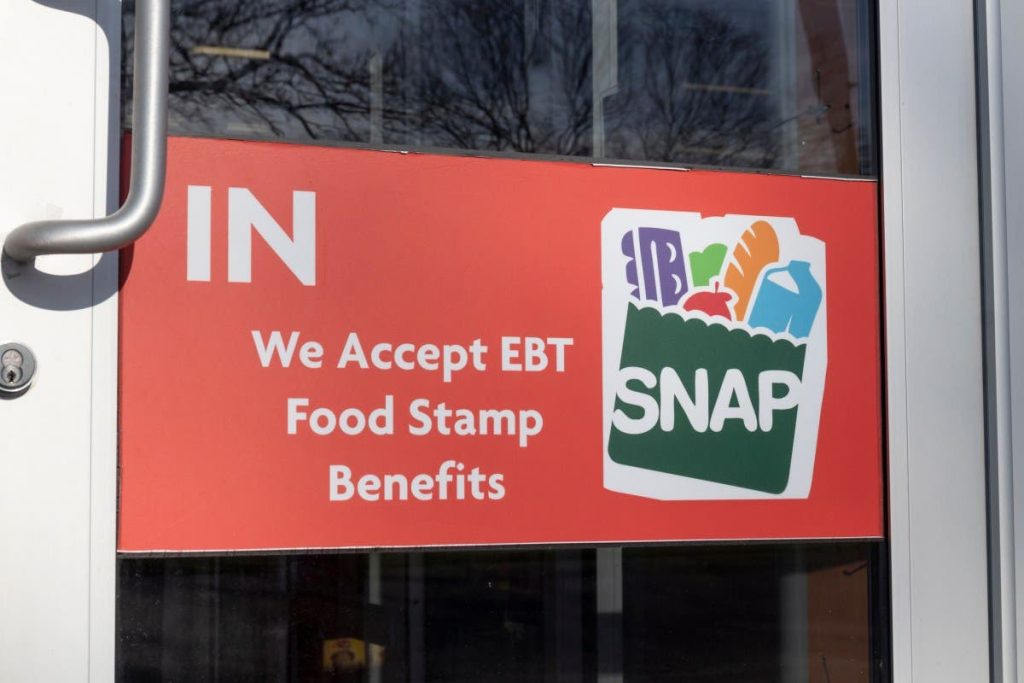Listen to the article
Nearly 42 million Americans face a looming crisis as November’s Supplemental Nutrition Assistance Program (SNAP) benefits are caught in the crossfire of the ongoing government shutdown, triggering a high-stakes legal battle between Democratic-led states and federal officials.
A coalition of 25 states and the District of Columbia has filed a lawsuit against the federal government, challenging the U.S. Department of Agriculture’s refusal to tap into contingency funds to continue distributing food assistance. At the center of the dispute is approximately $6 billion in reserve funds that lawmakers argue could temporarily sustain the program.
Connecticut Representative Rosa Luisa DeLauro, ranking member of the House Appropriations Committee, asserted on October 28 that “there is funding available to provide SNAP benefits beyond November 1. There is at the very least over $5 billion in contingency funds that Congress set aside.”
SNAP benefits, which are loaded onto electronic benefit transfer (EBT) cards monthly, serve as a critical lifeline for low-income households to purchase groceries at participating retailers. In May 2025 alone, the program distributed nearly $7.9 billion in food assistance, according to the most recent USDA data.
The lawsuit contends that the USDA has selectively redirected funds to maintain certain programs during the shutdown while choosing not to do the same for SNAP. For example, the agency has shifted existing funds to deliver aid to farmers and reopen about 2,100 Farm Service Agency offices. It also tapped Section 32 funds to temporarily support the Women, Infants, and Children (WIC) nutrition program.
“USDA suspended SNAP benefits even though, on information and belief, it has funds available to it that are sufficient to fund all, or at least a substantial portion, of November SNAP benefits,” states the lawsuit filed by the Democratic state leaders.
The legal dispute hinges on a technical but crucial interpretation of how contingency funds can be used during a government shutdown. The USDA maintains that while it does have contingency funds, they cannot legally be deployed in this situation.
According to an October 24 memo from the USDA: “SNAP contingency funds are only available to supplement regular monthly benefits when amounts have been appropriated for, but are insufficient to cover, benefits. The contingency fund is not available to support FY 2026 regular benefits, because the appropriation for regular benefits no longer exists.”
This interpretation directly contradicts the USDA’s own September 2025 shutdown plan, which states that “multiyear contingency funds are also available to fund participant benefits in the event that a lapse occurs in the middle of the fiscal year.”
The political divide over this issue has sharpened as the shutdown continues. House Speaker Mike Johnson placed blame on Democrats, saying, “There has to be a preexisting appropriation for the contingency to be used, and Democrats blocked that appropriation when they rejected the clean continuing resolution. The best way for SNAP benefits to be paid on time is for the Democrats to end their shutdown.”
Food security experts warn that disruptions to SNAP could have cascading effects beyond just program beneficiaries. Grocery retailers in low-income neighborhoods, where SNAP purchases often account for a significant portion of sales, could face substantial revenue losses. The timing is particularly concerning as families approach the holiday season, traditionally a period of higher food expenses.
Even if courts rule that contingency funds can be used, another challenge looms: the available $6 billion falls short of covering the program’s monthly cost of approximately $8 billion. This means that even with access to these funds, the USDA might need to implement partial payments or prioritize certain categories of recipients.
For now, millions of Americans who rely on SNAP to feed their families face uncertainty as they await the outcome of this legal dispute. Food banks across the country are already reporting increased demand as households prepare for possible benefit interruptions.
The resolution ultimately depends on either a court ruling in favor of using contingency funds or an end to the government shutdown that would restore normal appropriations to the SNAP program.
Verify This Yourself
Use these professional tools to fact-check and investigate claims independently
Reverse Image Search
Check if this image has been used elsewhere or in different contexts
Ask Our AI About This Claim
Get instant answers with web-powered AI analysis
Related Fact-Checks
See what other fact-checkers have said about similar claims
Want More Verification Tools?
Access our full suite of professional disinformation monitoring and investigation tools




7 Comments
While the legal dispute over SNAP contingency funds is complex, the bottom line is that vulnerable families should not be held hostage by political gridlock. I hope the courts can provide a swift and fair resolution.
This situation highlights the critical importance of the SNAP program and the need for adequate contingency funding to ensure food aid is available during crises. I hope a timely resolution can be reached.
This is a concerning situation for millions of vulnerable Americans who rely on SNAP benefits to put food on the table. The legal battle over accessing contingency funds is critical to ensure SNAP recipients don’t face disruption in their food assistance.
I hope the states and DC prevail in their lawsuit so the government can quickly tap into the available emergency funds to continue SNAP distributions without delay.
Nearly $8 billion in SNAP benefits were distributed just last May, underscoring how essential this program is for millions of Americans. The government must find a way to unlock the contingency funds to avert a disastrous disruption in food assistance.
It’s troubling to see the government refusing to utilize the $6 billion in contingency funds that Congress set aside for SNAP. These benefits are a lifeline for low-income households struggling with food insecurity.
This appears to be a political standoff that is putting vulnerable Americans at risk. The government should prioritize providing food assistance over partisan disputes.